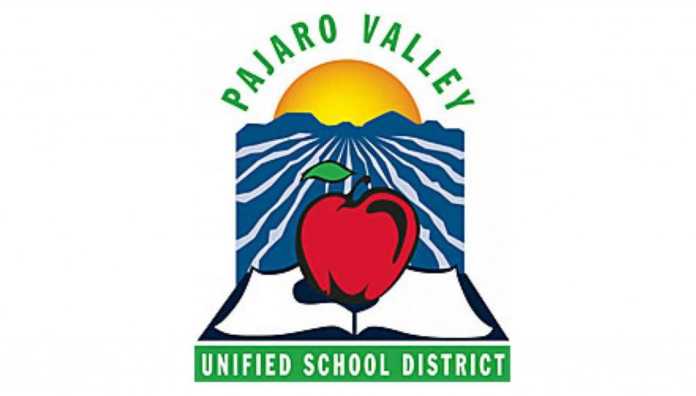Distributing limited resources fairly and equitably in a way that best serves students, staff, families and the community is an ongoing challenge for any school board. On July 21, the Pajaro Valley Unified School District Board of Trustees will review and discuss the Elementary and Secondary School Emergency Relief (ESSR) funding allocation. There are significant needs at all of our sites, for both personnel and infrastructure. Each trustee could probably provide a list of projects for each one of their sites that would use the entirety of the ESSR budget.
The challenge that follows difficult deliberations is understanding that expressions of frustration about those decisions are normal to human experience and to be expected. When we celebrate the completion of a major project as a district (like the completion of the Pajaro Valley High School field), if individuals have more direct ties to another site, it can be easy to fall into a mindset of, “Well, that’s great for them, but what about us?” Psychologists describe the phenomenon of “the grass is always greener on the other side” as an early human survival mechanism to ensure adequate resources. The difficulty comes from when we habituate to the positive things we do have and focus only on what we lack—or what others have.
This pattern can lead to resentment and division. Again, completely understandable, but not particularly useful for supporting learners in reaching their highest potential. We can interrupt this tendency by recognizing how our district’s diverse needs and resources benefit a truly unified district.
An easy link is how all our sites benefit from economy of scale. A real-world analogy is the kind of bulk purchasing an individual can do at warehouse-type stores. Think of going to Costco and getting a great deal on a big box of peaches. However, if your household only eats half the peaches before the rest go bad, the discount disappears. The bulk buying that our food services can accommodate with the size of our district means that not only do we make the most of the “deal,” but we can reduce waste and leverage the savings to provide healthier options.
Economy of scale is also what allows our district to keep administrative costs low. Only 1.2% of PVUSD’s budget goes to administrative salaries, less than half of the average percentage of other districts. Lean district-level overhead allows us to redirect resources closer to where students need them—at the school sites. In the past, some schools only had an Academic Coordinator for 50% of the time. Our district made adjustments so that each elementary site has a full-time Academic Coordinator—a benefit to schools in both north and south zones.
The returns on investments that we see throughout our district are not limited to economic factors. The pandemic caused a great deal of emotional distress for many of our students. By being part of PVUSD, all of our school communities continue to benefit from our partnerships with organizations like Pajaro Valley Prevention and Student Assistance that provide social-emotional counseling support—not just those schools in the areas PVPSA would typically serve. Additionally, Aptos High School has College and Career Centers again (after a 10-year absence) because of partnerships leveraged with the Early Academic Outreach Program through the improved state budget and CARES Act funding.
Several board trustees had children in the district when budget constraints forced the elimination of many treasured arts and music programs. That deficit was mentioned as a primary motivation for service during several campaigns. The grant funding for pilot programs like El Sistema allowed for demonstrating the value of such programs. The pilot’s success permitted expansion from its initial location at Radcliff Elementary to Valencia, Mintie White and Duncan Holbert elementary schools.
Our Career and Technical Education programs are a stellar example of “sharing the wealth.” By deepening the pathways at individual high schools, we can offer more robust opportunities for our students to explore potential interests. But students are not limited to the pathways unique to their home school. If a PVHS student is interested in carpentry, they can enroll in building trade courses at Aptos High. Conversely, an Aptos student interested in sustainable agricultural practices could enroll in those courses at Watsonville High School.
We could fill an entire special edition of the Pajaronian with all of the ways in which the different PVUSD zones and sites benefit one another. In this column, we have not begun to touch on the opportunities students have with projects like the Emeril Lagasse Culinary Garden and Teaching Kitchen Project or even basic infrastructure that benefits the entire district, like our transportation department. And those are just two additional examples.
Stakeholders should continue to speak up for the needs of individual sites and programs. That kind of advocacy is one of the checks that the community can use to ensure that we, as a board, fulfill our promise of equitable and fair distribution of resources. However, as we each fight for our corner, it is essential to remember that we are playing on the same field. We all win when we recognize the unique contributions of different sites and programs.
A humbling aspect of becoming a school board trustee is realizing how many different considerations go into every decision. This column is PVUSD’s community outreach to clarify how the board arrives at its decisions. Jennifer Holm is President of the PVUSD Board of Trustees and Jennifer Schacher is the Vice-President. Their views are her own and not necessarily those of the Pajaronian. Contact Holm at je***********@***sd.net and Schacher at je***************@***sd.net.










